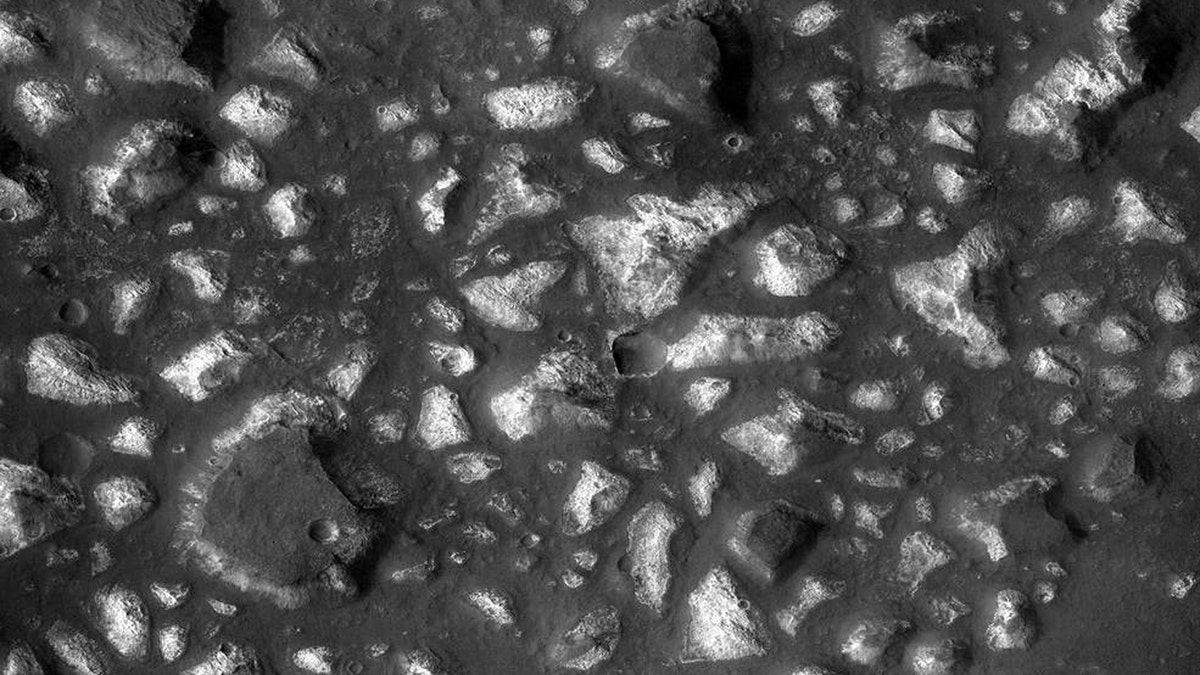
This view of a portion of the Eridania region of Mars shows blocks of deep-basin deposits that have been surrounded and partially buried by younger volcanic deposits. The image was taken by the Context Camera on NASA's Mars Reconnaissance Orbiter and covers an area about 12 miles wide. (Credits: NASA/JPL-Caltech/MSSS)
A recent discovery made by NASA's Mars Reconnaissance Orbiter (MRO) shows the evidence of ancient sea-floor hydrothermal deposits that may offer clues about life on the Red Planet and Earth as well.
The authors of the study, Paul Niles and Joseph Michalski, believe there were volcanoes on the planet long ago that led to water being heated and may provide clues on how life began.
"Even if we never find evidence that there's been life on Mars, this site can tell us about the type of environment where life may have begun on Earth," said Niles, who works at NASA's Johnson Space Center, Houston, in a statement. "Volcanic activity combined with standing water provided conditions that were likely similar to conditions that existed on Earth at about the same time -- when early life was evolving here."
LIFE EXISTED ON MARS, SHOCKING DISCOVERY SUGGESTS
The researchers believe that the Eridania sea once had as much as 50,000 cubic miles of water in it, or about nine times more than the combined volume of the Great Lakes. Minerals such as talc, carbonate and serpentine have been found using the spectrometer.
"Ancient, deep-water hydrothermal deposits in Eridania basin represent a new category of astrobiological target on Mars," the report said.
It added: “Eridania seafloor deposits are not only of interest for Mars exploration, they represent a window into early Earth." That is because the earliest evidence of life on Earth comes from seafloor deposits of similar origin and age, but the geological record of those early-Earth environments is poorly preserved.
Today, Mars does not have any standing water or any volcanic activity. It is estimated that it has been 3.7 billion years since the Martian deposits were formed by the hydrothermal activity. Those conditions obviously still exist on Earth and life has thrived on the planet as a result.
"This site gives us a compelling story for a deep, long-lived sea and a deep-sea hydrothermal environment," Niles added. "It is evocative of the deep-sea hydrothermal environments on Earth, similar to environments where life might be found on other worlds -- life that doesn't need a nice atmosphere or temperate surface, but just rocks, heat and water."
The report is featured in the recent report in the journal Nature Communications.
